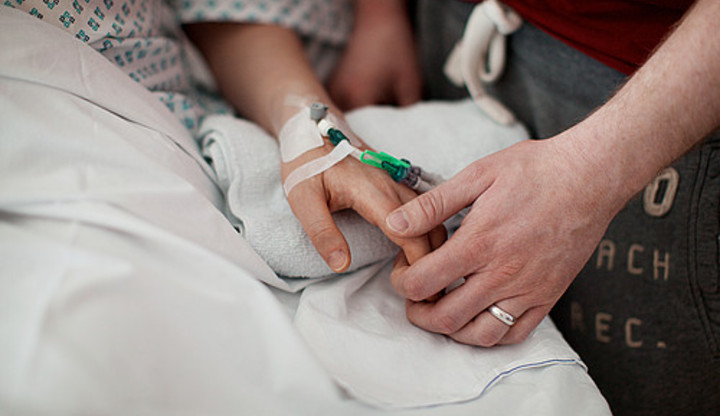Staff on ICU
Whilst on an ICU ward you will be looked after by lots of people who all have a special role in ensuring you receive the best care. The ICU can be a strange and sometimes scary environment for a patient. If a patient is unconscious the staff will speak to the patient and explain to them what they are doing as it is possible a patient can still hear/feel what is going on around them.
Below is a brief explanation about the roles of the staff who will look after you
Doctors
There will be many different doctors working on an ICU who will have different levels of seniority. You will have a named Consultant who will be responsible for making any major decision about your care. There will also be Specialist Registrars (they will often have a background in anaesthesia) and Senior House Officers who will make day to day decisions on your care. You may also meet some junior doctors who are training.
Alongside the above, there maybe other specialist doctors such as surgeons, neurologists or cardiologists who will have an input into your care and may visit you to discuss tests or procedures.
Doctors will carry out a full patient assessment at the start of their shift and speak with the nurses looking after you. They will also take part in a ward round alongside other ICU staff.
Nurses
Nurses on ICU will carry out a variety of tasks from taking blood, working with complicated monitors or equipment to providing personal care. They will also normally be the first point of contact for your family and friends, and will be able to keep them up to date with your progress as well as answering any questions.
If you are ventilated you will normally have one dedicated nurse to provide your care, where as other non ventilated patients will share nursing staff. It is also common for nurses to look after the same patient/s on their next shift.
Nurses will assess the patient at the start of their shift, and make notes on things like their vital signs, blood results, medication, how you have been sleeping and will also ensure you are moved in bed to prevent bed sores.
Physiotherapist
Physiotherapists will help you with your breathing and exercises to help you to get mobile again. In terms of breathing help, the physio will help you to make your breathing pattern more effective by helping to improve lung and chest expansion, clearing phlegm from the chest and helping you to improve your coughing to help you clear the phlegm yourself if needed.
With exercise, a physio will help you to regain your muscle, strength and general mobility which may have been lost from laying immobile during your stay. A physio may also continue to visit you once you are discharged onto a normal ward to continue your care.
Dietitian
During your time on ICU your body will use up energy quicker, meaning you are likely to lose a lot of weight and muscle. This can affect your mobility and cause you to feel tired more quickly. Dietitians are there to help insure you are eating properly/getting the right nutrients whilst on ICU.
If you are connected to a a ventilator you will be unable to eat as you normally would, therefore you will be given a liquid feed via a tube that goes in your nose and into your stomach. A dietician will work out how much calories (energy) and protein you will need to help reduce your muscle and weight loss. If you are not ventilated or come off ventilation and are able to eat properly a dietician will help ensure you are getting the right food to aid your recovery.
A dietician will also be able to give you advice on ways to increase your calorie intake after you leave ICU and may recommend liquid supplements to help aid your recovery and weight gain.
Pharmacist
The main role of a pharmacist is to ensure that your medication that has been prescribed to you is appropriate and safe in terms of dose, the way it is given, how often it is given and if it could cause any side effects. They will work closely with the medical and nursing team throughout your stay.
Spiritual support
Being on an ICU for any amount of time can be a very stressful time for you, your family and friends. Spiritual support offered by the hospital may help to alleviate some of the stress by offering a sounding board for fears and worries. Hospitals will offer a range of assistance to suit religion, faith, belief or views and your nurse will be able to help arrange this for you or your family.





